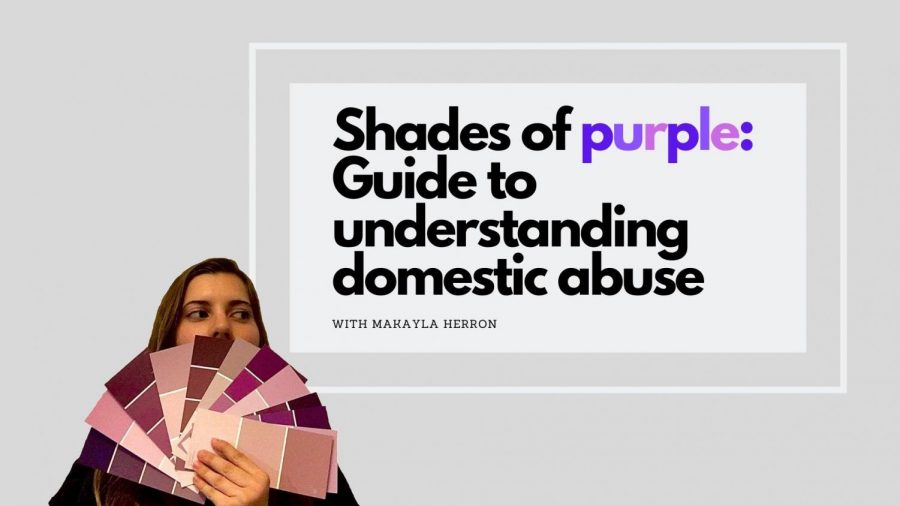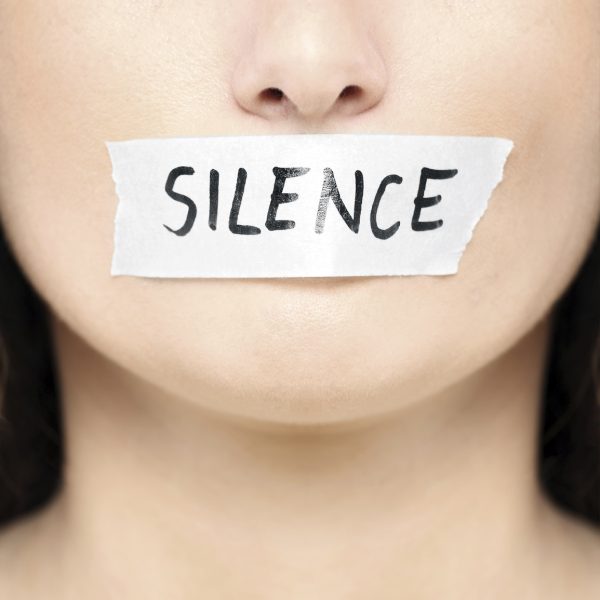Shades of purple: Guide to understanding domestic abuse
How to utilize childhood abuse to develop stronger relationships
Walking out of my room, I found my mom watching TV on the couch. From the way she sat on the couch to the outfit she wore, I felt like I was looking into a mirror. Much of my taste in fashion, mannerisms and outlook on life can be attributed to her. Parents’ personal attitudes and behaviors influence a child even before birth, such as anger issues or alcoholism, but parents’ actions throughout a child’s upbringing also has an influence. This behavior includes parents who are abusive either to their child or to their spouse.
According to a 2017 report on Child Maltreatment by the U.S. Department of Health and Human Services, child abuse reports included 7.5 million children. Studies show that children who grew up with an abusive parent are more likely to experience post-traumatic stress disorder, anxiety and depression. Additionally, they’re more likely to show aggression and criminal behavior because their parents have normalized that behavior as a response to stress or conflict. However, having an abusive parent might also do the opposite — this type of abuse creates an impaired sense of self, which increases the risk of revictimization as well.
The effects of witnessing domestic abuse is just as impactful on a child’s upbringing as experiencing the abuse itself. With an estimated 4.5 to 15 million children exposed to physical violence at home, the effects are widespread and likely include many students in Plano ISD. According to USA Today, the impact on children resembles the impact of war on a soldier in combat. If the abuse occurs while the child is still a fetus the baby will have greater inflammation in their body, but witnessing abuse can also reduce parts of their brain, change its overall structure or affect the way its circuits work together. The physical and mental damage reveal one of the most dangerous effects of domestic abuse — the ability for abusive behavior to control victims for a prolonged period of time — which poses a risk to many students who have been abused or witnessed it.
As many students are experiencing serious relationships for the first time, or at least planning to post-high school, those who grew up around abuse must be especially cautious. Although they are high risk to domestic abuse, they can still prevent ending up with or being a controlling partner. While setting boundaries and watching out for red flags are important, these students must also be wary of themselves. Witnessing abuse as a child means a constant fight to avoid continuing the cycle. The first place to start would be to find constructive ways to deal with their anger from the abuse as a child — many never do — especially if the abuse is ongoing. From there, students should determine what personal qualities they may possess that might resemble their abusive parent by making a list or talking it through with a third party. If they can identify what qualities they share, they can also avoid falling into the same cycle.
Group and individual therapy is especially important and could be an outlet for students to bring up negative qualities resembling their abusive parent and learn methods of reducing the incidence of those qualities. Moreover, therapy can foster resilience and a positive outlook on the future.
For students in this situation, it may take time to confront the abusive parent for their actions, but writing a letter to them may help release frustration or resent. Author and journalist Deborah Copakan famously wrote a letter to the man who raped her, Associate Justice of the Supreme Court Brett Kavanaugh, and Kavanaugh responded with an apology. Although abusers are notorious for their refusal to apologize for their wrongdoings, writing a letter can still be therapeutic. As Copakan put it, “The act of writing the letter provided the most relief. I’d placed the ball in his court. That was the whole point of writing the letter. Relieving myself of having to carry the burden of his crime alone.” In other words, students may not receive an apology, but putting their feelings on paper may help them realize they’re not responsible for another’s actions. Sometimes writing the letter and keeping it may be helpful too, and when they’re ready, they can come back to it and see how much they’ve grown.
Communication is key in romantic relationships. Without it, the relationship is unable to grow and change. Students, whether they have or haven’t experienced abuse, should discuss qualities in themselves that could potentially be abusive, such as anger issues or jealousy. In doing so, they enable their partner to help them become stronger and can even grow with them. The couple should discuss clear plans for how they intend to help each other; for example, by coming up with code words for when they’re being too protective or too aggressive.
Although having these discussions may seem awkward at this stage in life, they may enable high school relationships to last beyond high school. However, high school relationships also enable students to mature and serve as practice for future relationships, so utilizing tactics for developing healthy, abuse-free relationships will help prepare students for even stronger ones in their adulthood.











